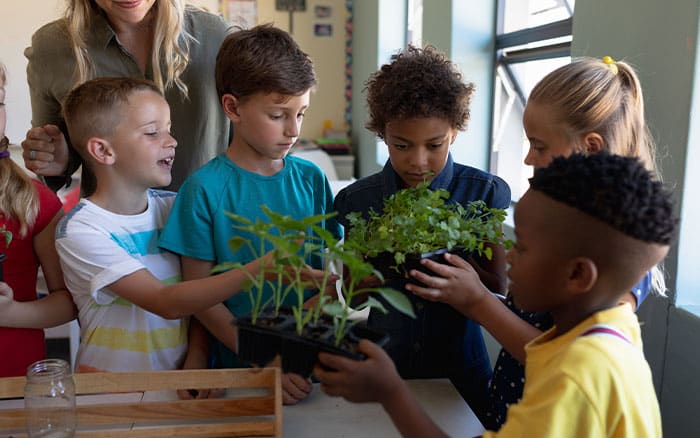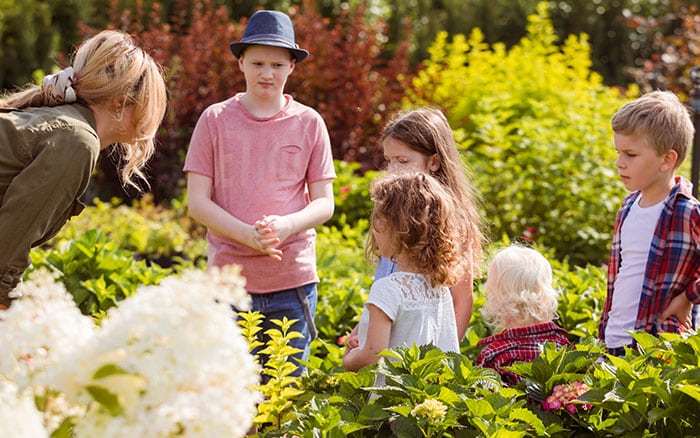What are the benefits of having a school garden?
Hear from our School Garden winner from 2017:
What is a school garden?
A school garden is a dedicated gardening space for school students to use and learn to grow together. It doesn't necessarily have to be on-site, but you can identify a space to build it using the help of your Local Education Authority.
Your school garden can be any size you like, depending on the space you have available. It could be anything from a large growing oasis, to grow bags and containers in a dedicated spot.
Plus, your school garden doesn't have to be able to grow everything; you can choose what you would like to grow depending on what resources you have available. Whether it is a small herb garden, a couple of fruit trees, or raised beds full of vegetables, you can choose what you grow to suit your needs.
What are the educational benefits?
There are countless ways that children of all ages can benefit from participating in a school garden, and this includes learning opportunities.
Firstly, it allows children to learn, from a young age, where their food comes from. Not only is this beneficial to them in learning where their food comes from, but it also teaches patience and appreciation. Once they understand the care and different processes required to get food from a seed to the table, they can understand more about how our modern world and agriculture works.
Also, it teaches them about important life processes. Learning all about plant cells and photosynthesis is currently a significant part of the science syllabus. This ultimately builds up to GCSEs, and a valuable way to help them retain this information is to learn it practically, through growing themselves.
School gardens also provide an opportunity for children to learn more about insects and garden mammals. Creatures such as worms, butterflies, bees and other pollinators, birds, and even small mammals like hedgehogs. Your school garden could become a wildlife haven which provides more teaching opportunities.
Finally, beyond all of this, gardening teaches children responsibility, independence, and how to work together as a team.

What are the physical and mental wellbeing benefits?
Mental and physical health can also see beneficial boosts for children through school gardening. This is not only true of children, but teenagers and adults also.
Firstly, providing an opportunity to learn away from the classroom can offer a healthy distraction and change of scenery. This may benefit concentration and focus, with the fresh air and outdoor setting leading to a refreshed mental state.

Additionally, and particularly amongst young children, this provides a great opportunity to hone fine motor skills. The precision required for some gardening tasks, such as planting, sowing, and harvesting, can benefit their ability to concentrate their hand and arm muscles on specific jobs.
For older children, getting outside to the garden can also provide physical exercise, depending on the tasks. Using wheelbarrows, planting out, lifting soil, and harvesting fruit and veg, can require a lot of walking, bending, and stretching. This can help keep them on their feet, improve flexibility, and improve their physical strength and stamina.
Finally, gardening can provide countless benefits to mental health, for adults and children alike. Some areas where the children may live may be very built up, in flats and apartments, where they have little to no access to green and growing spaces. School gardens can provide this for them, where they may not have it readily available at home.
Also, the distractions that this may offer from stressful home environments or schoolwork could be immeasurably beneficial in the long term. The socialisation this provides, or even quiet time to focus on something can offer an important outlet for these children. This escape from some of the stresses of their other environments can ben an invaluable space for their mental health.

